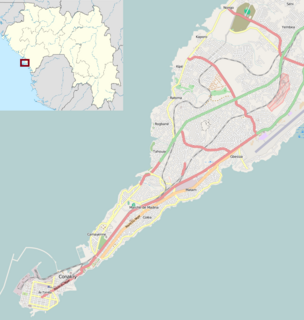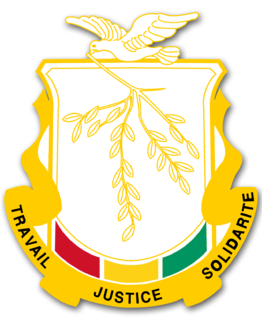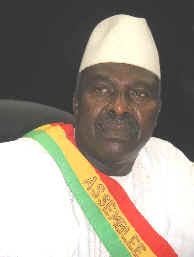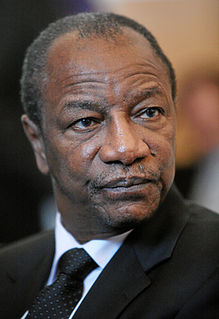| Ambroise Paré Hospital | |
|---|---|
| Geography | |
| Location | Conakry, Guinea |
| Coordinates | 9°31′41″N13°41′18″W / 9.527925°N 13.688356°W Coordinates: 9°31′41″N13°41′18″W / 9.527925°N 13.688356°W |
The Clinique Ambroise Paré is a hospital in Conakry, Guinea, is considered to be the best hospital in the country. [1]

A hospital is a health care institution providing patient treatment with specialized medical and nursing staff and medical equipment. The best-known type of hospital is the general hospital, which typically has an emergency department to treat urgent health problems ranging from fire and accident victims to a sudden illness. A district hospital typically is the major health care facility in its region, with a large number of beds for intensive care and additional beds for patients who need long-term care. Specialized hospitals include trauma centers, rehabilitation hospitals, children's hospitals, seniors' (geriatric) hospitals, and hospitals for dealing with specific medical needs such as psychiatric treatment and certain disease categories. Specialized hospitals can help reduce health care costs compared to general hospitals. Hospitals are classified as general, specialty, or government depending on the sources of income received.

Conakry is the capital and largest city of Guinea. A port city, it serves as the economic, financial and cultural centre of Guinea. Its population as of the 2014 Guinea census was 1,660,973 Originally situated on Tombo Island, one of the Îles de Los, it has since spread up the neighboring Kaloum Peninsula.

Guinea, officially the Republic of Guinea, is a west-coastal country in West Africa. Formerly known as French Guinea, the modern country is sometimes referred to as Guinea-Conakry in order to distinguish it from other countries with "Guinea" in the name and the eponymous region, such as Guinea-Bissau and Equatorial Guinea. Guinea has a population of 12.4 million and an area of 245,860 square kilometres (94,927 sq mi).










